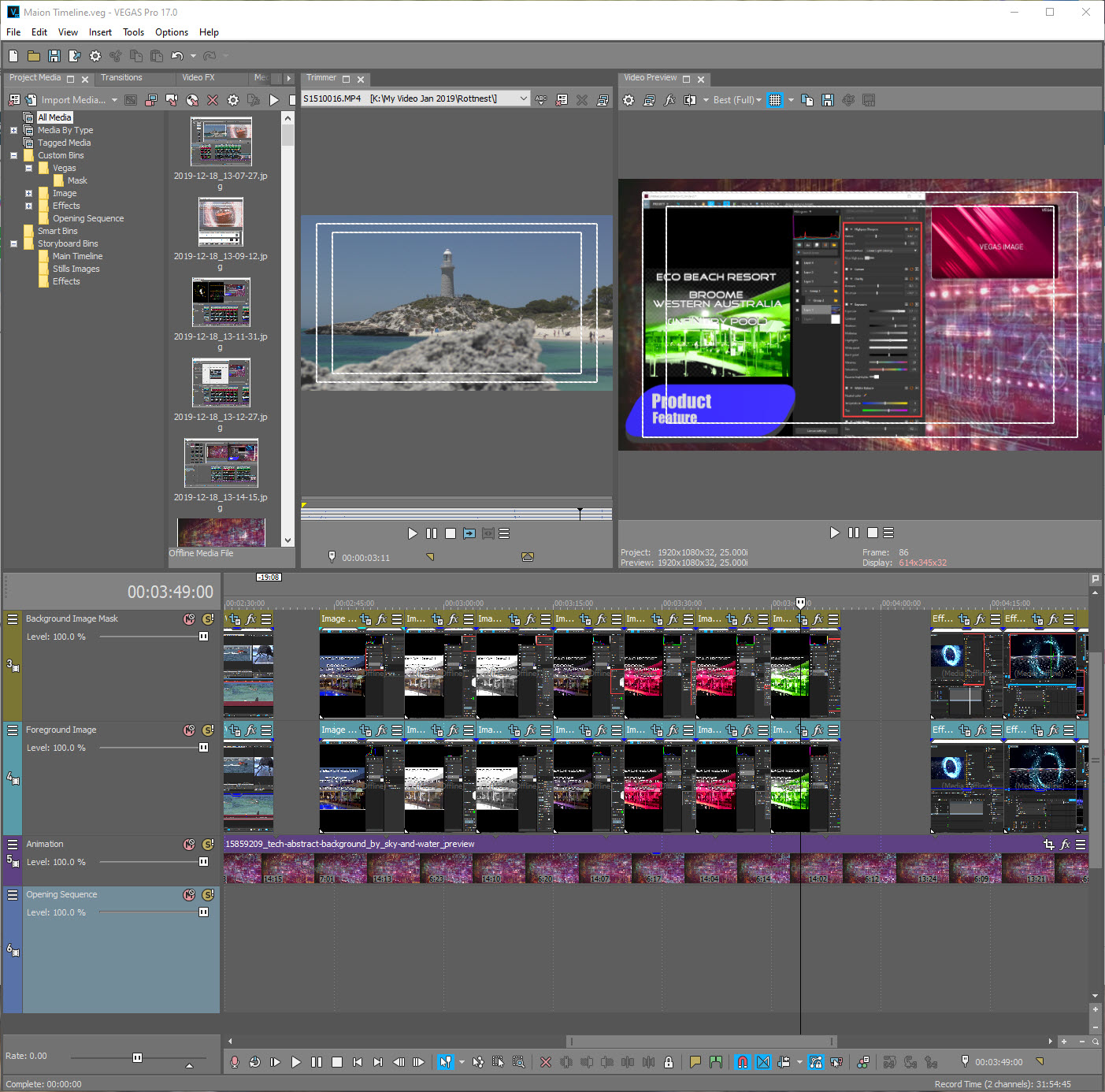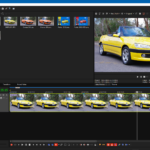Users of Vegas Pro, the video editing suite Germany based Magix took over from Sony in 2016, are nervously awaiting news about the product’s future. The company put out a press release earlier in the month saying that it was filing for insolvency caused by “sinking revenue” and this had been caused by having too wide a portfolio of products along with intense competition from companies like Blackmagic Design which gives its equivalent package away for free.
According to website CineD, the company also blamed the slow adaptation of cost structure and a failure to use modern e-commerce methods for their problems. It has announced restructuring measures – which usually means layoff of personnel – in the near future, cut back on the number of offerings it has and hopes to gain outside investor interest within the next 2 to 3 months.
In 2023, revenue collapsed from 32 million € to 20 million €.
As well as 3 different versions of Vegas Pro, from Sony, Magix also inherited the respected Sound Forge and widely used Acid audio packages. Complicating matters is that Magix also has its own line of editing packages – Video Deluxe of which there is also 3 versions- and a plethora of music making programs such as Samplitude and Sequoia.
There are rumours the core video engine is being re-written and is due for imminent release in a new version very shortly, but there is now no guarantee this will happen of course.
I personally was a Vegas Pro user from as far back as version beta 0.9, and Australian Videocamera (now Creative Content) was seen by many as the hub of Vegas users in Australia, so to me this news is very disappointing. However, since Magix took it over, we had little to no support from the company, excepting the occasional review copies, and hence my own personal switch to Blackmagic Design’s DaVinci Resolve.
I have put a call out to the US PR for Magix and will update you as I hear more.








Nobody is in limbo… VEGAS 22 development is well underway and is planned for release later this year. There is also a large update for VEGAS 21 about to drop in a few weeks that adds new features and vastly improves performance with certain formats.
This restructuring needed to happen long ago, the system Magix was using to sell VEGAS was very convoluted and confusing for the end user, with so many different “versions” of the software available, which in reality were all just the same software with different bundles, that it left people confused as to exactly what they were buying.
This is going to fix all that, and will do the same for Magix’s other offerings as well.
Totally agree that Magix let the side down. I have heard back from the PR folk (who I believe you also know) and indeed the situation does seem to be under control. I hopeit all pans out.
“However, since Magix took it over, we had little to no support from the company, excepting the occasional review copies, and hence my own personal switch to Blackmagic Design’s DaVinci Resolve.” – Which that said, it sounds to me like, despite the assurances that VEGAS’ development is not going to be affected by this, which you acknowledge but then cast doubt upon in your own article, that you have some bias against the product.
You also fail to mention that the free version of Resolve is extremely limited in its features and format support, and doesn’t even come close to comparing to the paid version of VEGAS in that regard.
The core video engine rewrite is well underway, and the first parts of that are going to be released in an update for VEGAS 21 which launches in a few weeks.
Saying that the free version of Resolve is extremely limited is very disingenuous to say the least. Very few users would reach its limits. I agree the lack of 4K+ editing is perhgaps an issue for some, but to go to the full version is the same price as Vegas Pro and I doubt anyone could say that Vegas is on par with Resolve at that level due to the inlcusion of Fusion and Fairlight.
And you misunderstand me; I think from the moment Magix took over Vegas, the users have been let down as they did not allocate the needed resources the development staff (who I know well) needed. And they certainly did themselves no favours in the PR side of things. I still love the program, but I hate the way it has been treated over the last 8 or so years.
Personally I believe the problems go back much further than that. I’ve been using Vegas since 2002 and SoundForge since 2000, when they were still owned by Sonic Foundry. Vegas was unique in that it was initially audio only and later added the video editing capabilities. So, as someone from an audio background, it made more sense to me than any of the other products at the time. When Sony took over I remember being excited as to the potential with the backing of such a large company and the first couple of years under Sony were great. I would even contact them with requests for new features or suggestions to improve functionality of some of the existing features and would always receive a response that showed someone had actually taken cognisance of my communication. Then around 2009 they simply seemed to lose interest. This was evident in the lack of development. I remember when Magix took over there was a lot of excitement and existing users that had started to become frustrated were given hope by the promise of renewed interest and development in the software. Magix had barely taken over when Sony threw a spanner in the works, demanding that all references to Sony should be removed from the code. I believe this was a major setback and alienated many users who had plug-ins that suddenly no longer worked in the new version. Sony was obviously aware of this prior to the sale and I believe they were mala fide in this respect, and that their intention was to damage the chances of future success of the suite of software they had just sold, or possibly to Magix as a company. Sony had no sooner sold this off when they started promoting their own Catalyst video editing software, which had clearly already been in development for some time. I may be wrong, but I believe if it wasn’t for interference by Sony, Vegas would have been in a much stronger position at this point.